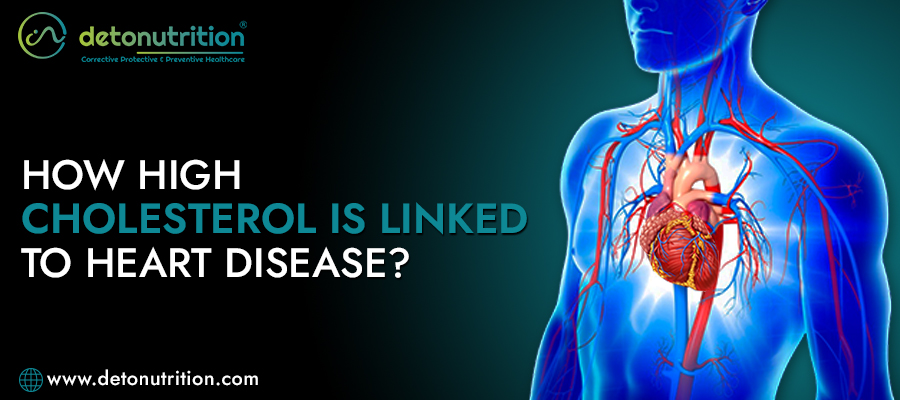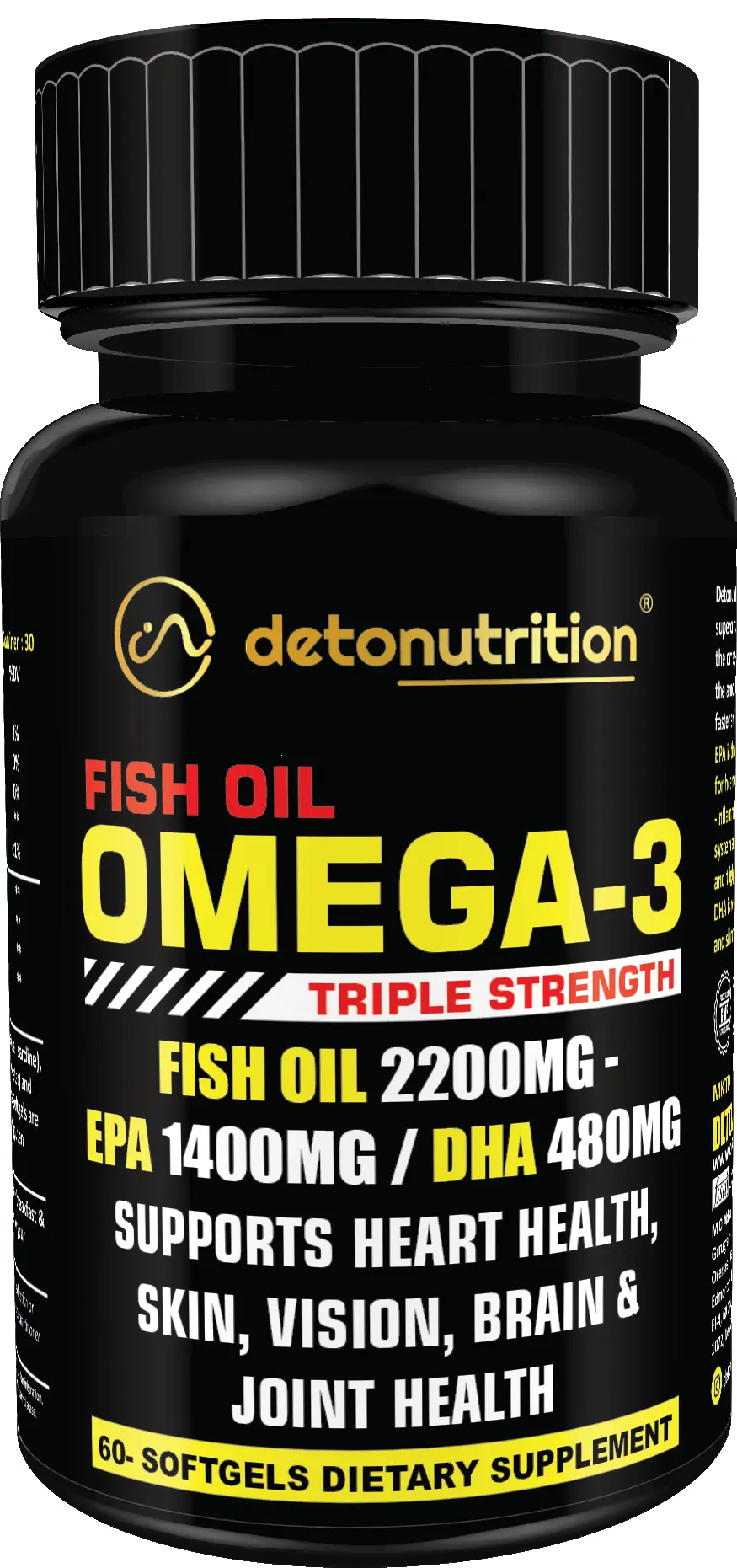How High Cholesterol Is Linked To Heart Disease?
Cholesterol is a waxy, fat-like substance that plays an essential role in functioning of various body organs, including the production of hormones, vitamin D, and bile acids that help digest fat. Despite its essential functions, high cholesterol levels can lead to serious heart health issues. Read on this blog to explore the relationship between cholesterol and heart disease, the types of cholesterol, risk factors, dietary influences, and the potential role of natural supplements in managing cholesterol levels.
What is Cholesterol?
Cholesterol is produced by the liver and also obtained from dietary sources such as eggs, cheese, etc. It travels through the bloodstream and is of two main types: low-density lipoprotein (LDL)and high-density lipoprotein (HDL). The balance between LDL and HDL is crucial for cardiovascular health.
Low-Density Lipoprotein (LDL)
LDL is also known as bad cholesterol and high levels of LDL can lead to plaque buildup in arteries which will lead to heart disease and stroke.
High-Density Lipoprotein (HDL)
HDL is also known as good cholesterol and helps to remove bad cholesterol from the bloodstream and transport it back to the liver for disposal.
A high level of LDL coupled with a low HDL level significantly increases the risk of developing heart disease.
The Link Between Cholesterol and Heart Disease.
Excess LDL cholesterol contributes to plaque formation in arteries. Over time, this plaque can harden or rupture, leading to blood clots that can cause heart attacks or strokes. When plaque builds up in the coronary arteries, it leads to narrowing the arteries and restricting blood flow to the heart muscle. This is one of the most common types of heart disease that is known as coronary artery disease (CAD) and this process is known as atherosclerosis.
The presence of high cholesterol can trigger inflammatory responses in the body. Chronic inflammation plays a significant role in atherosclerosis progression. CAD later leads to various other heart conditions that affect the heart's structure and function. High cholesterol often coexists with other risk factors for heart disease, such as high blood pressure, diabetes, obesity, smoking, and a sedentary lifestyle. Each additional risk factor leads to cardiovascular problems.
How Dietary Influences Cholesterol Levels
Saturated Fats
Foods that are high in saturated fats can raise LDL levels. These include fatty meat, full-fat dairy products, and certain oils like palm oil.
Trans Fats
Trans fats are artificially created fats that is found in many processed foods and are known to raise LDL while lowering HDL levels.
Dietary Cholesterol
Dietary cholesterol that is found in eggs and shellfish has a minimal impact on blood cholesterol levels compared to other fats like saturated fats. So, moderate consumption of these foods may not pose significant risks for heart disease.
Lifestyle Changes for Managing Cholesterol
To maintain healthy cholesterol levels and reduce heart disease risk, consider implementing the following lifestyle changes:
1. Eat a Healthy Balanced Diet
Focus on a diet rich in fruits, vegetables, whole grains, lean proteins like fish and poultry, and healthy fats such as nuts, seeds, and avocados. Limit the intake of saturated fats and eliminate trans fats.
2. Regular Exercise
Physical activity helps raise HDL levels while lowering LDL levels. Aim for at least 150 minutes of moderate-intensity exercise per week.
3. Weight Management
Maintaining a healthy weight can help control cholesterol levels. Even modest weight loss can have significant benefits for heart health.
4. Avoid Smoking
Quitting smoking improves HDL cholesterol levels and benefits overall cardiovascular health.
Consider Herbal Cholesterol Control Supplement
In addition to lifestyle changes, some individuals may consider supplements to help manage their cholesterol levels. One such supplement is Deto Lipin-C, which aims to support healthy cholesterol metabolism.
Deto Lipin C contains ingredients that help:
Lower LDL Levels
Certain plant extracts can aid in reducing LDL levels.
Increase HDL Levels
Ingredients aimed at enhancing HDL functionality may support overall cardiovascular health.
Support Overall Heart Health
By promoting better lipid profiles and reducing inflammation, Deto Lipin C could contribute positively to heart health.
However, it is essential to consult with a healthcare professional before starting any supplement regimen to ensure efficacy based on individual health needs.
Conclusion
The relationship between cholesterol and heart disease is complex but it’s crucial for understanding cardiovascular health. While high LDL levels are associated with increased risks of heart disease due to plaque formation and inflammation, lifestyle choices and supplementation play an equally vital role in managing these risks. A balanced diet that is low in saturated fats combined with regular physical activity can significantly improve cholesterol levels. By taking proactive steps towards managing cholesterol levels, you can easily enhance your overall heart health and reduce your risk of cardiovascular diseases.

We have a vision to take good care of your health and nutrition with products which are made from research and experience. Our team is technical as well as experienced so that we can deliver you the best products for your health and wellness.
Stay Fit, Stay Healthy And Stay Happy Always!
QUICK LINKS
CATEGORIES
Subscribe Us
Subscribe to Dr. Aaditya's Health Blog Email Newsletter
© Copyright - Detonutrition. All Right Reserved 2026.




